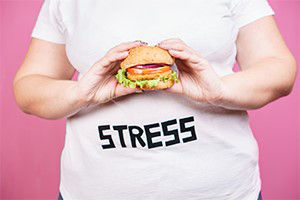
Introduction: Stress and emotional eating are common challenges faced by many individuals, often leading to unhealthy eating habits and negative impacts on both physical and mental well-being. In this extensive guide, we will explore effective strategies for managing stress and emotional eating, empowering you to cultivate healthier coping mechanisms and achieve a more balanced relationship with food and emotions.
Understanding Stress and Emotional Eating: Stress is a natural response to challenging or threatening situations, triggering a cascade of physiological changes in the body. While acute stress can be beneficial in certain situations, chronic stress can have detrimental effects on both physical and mental health. Emotional eating, on the other hand, refers to the tendency to use food as a coping mechanism to deal with negative emotions such as anxiety, sadness, boredom, or loneliness. While food may provide temporary comfort, it often leads to feelings of guilt, shame, and regret afterward, perpetuating a cycle of emotional eating.
Identifying Triggers: The first step in managing stress and emotional eating is to identify the triggers that contribute to these behaviors. Common triggers may include work or school-related pressures, relationship conflicts, financial stress, social isolation, or unresolved emotional issues. By recognizing the situations, events, or emotions that trigger stress and emotional eating, you can develop targeted strategies for addressing them more effectively.
Developing Healthy Coping Mechanisms: Instead of turning to food as a coping mechanism, explore alternative ways to manage stress and regulate emotions. Some effective coping strategies include:
- Mindfulness and Meditation: Practice mindfulness techniques such as deep breathing exercises, meditation, or yoga to calm the mind and reduce stress levels. Mindfulness helps cultivate awareness of thoughts and emotions without judgment, allowing you to respond to stressors in a more grounded and centered manner.
- Physical Activity: Engage in regular physical activity to release tension, boost mood, and promote overall well-being. Whether it’s going for a walk, practicing yoga, or participating in a favorite sport or exercise class, find activities that you enjoy and incorporate them into your daily routine.
- Journaling: Keep a journal to express your thoughts, feelings, and emotions in a safe and non-judgmental space. Writing can help process complex emotions, gain insight into patterns of behavior, and identify triggers for stress and emotional eating.
- Social Support: Reach out to friends, family members, or support groups for emotional support and encouragement. Sharing your feelings with trusted individuals can provide validation, perspective, and practical solutions for managing stress and emotional eating.
- Creative Outlets: Explore creative outlets such as art, music, dance, or cooking as a means of self-expression and stress relief. Engaging in creative activities allows you to channel emotions in a positive and constructive way, fostering a sense of fulfillment and purpose.
- Relaxation Techniques: Practice relaxation techniques such as progressive muscle relaxation, guided imagery, or aromatherapy to promote relaxation and reduce stress. Create a calming environment at home with soothing music, candles, or essential oils to enhance relaxation.
- Healthy Lifestyle Habits: Prioritize self-care activities such as getting adequate sleep, maintaining a balanced diet, staying hydrated, and practicing good hygiene. Taking care of your physical health lays the foundation for managing stress and emotional eating more effectively.
- Time Management: Organize your time effectively to reduce feelings of overwhelm and stress. Break tasks into smaller, manageable steps, prioritize essential activities, and delegate responsibilities when necessary. Setting realistic goals and boundaries helps create a sense of control and accomplishment.
Challenging Negative Thought Patterns: Challenge negative thought patterns and beliefs that contribute to stress and emotional eating. Practice cognitive-behavioral techniques such as cognitive restructuring, reframing negative self-talk, and cultivating self-compassion. Recognize that you have the power to choose how you respond to stressors and emotions, and challenge yourself to adopt a more positive and empowering mindset.
Seeking Professional Support: If stress and emotional eating persist despite your best efforts to manage them independently, consider seeking support from a mental health professional or registered dietitian. Therapy can provide valuable tools and strategies for addressing underlying emotional issues and developing healthier coping mechanisms. A dietitian can offer personalized nutrition guidance and support to help you establish a balanced and nourishing relationship with food.
Conclusion: Managing stress and emotional eating requires a holistic approach that addresses the underlying causes and triggers while cultivating healthy coping mechanisms and self-care practices. By identifying triggers, developing healthy coping strategies, challenging negative thought patterns, and seeking professional support when needed, you can break free from the cycle of stress and emotional eating and cultivate a more balanced and fulfilling relationship with food and emotions. Remember that change takes time and patience, so be gentle with yourself as you embark on this journey toward greater health and well-being.